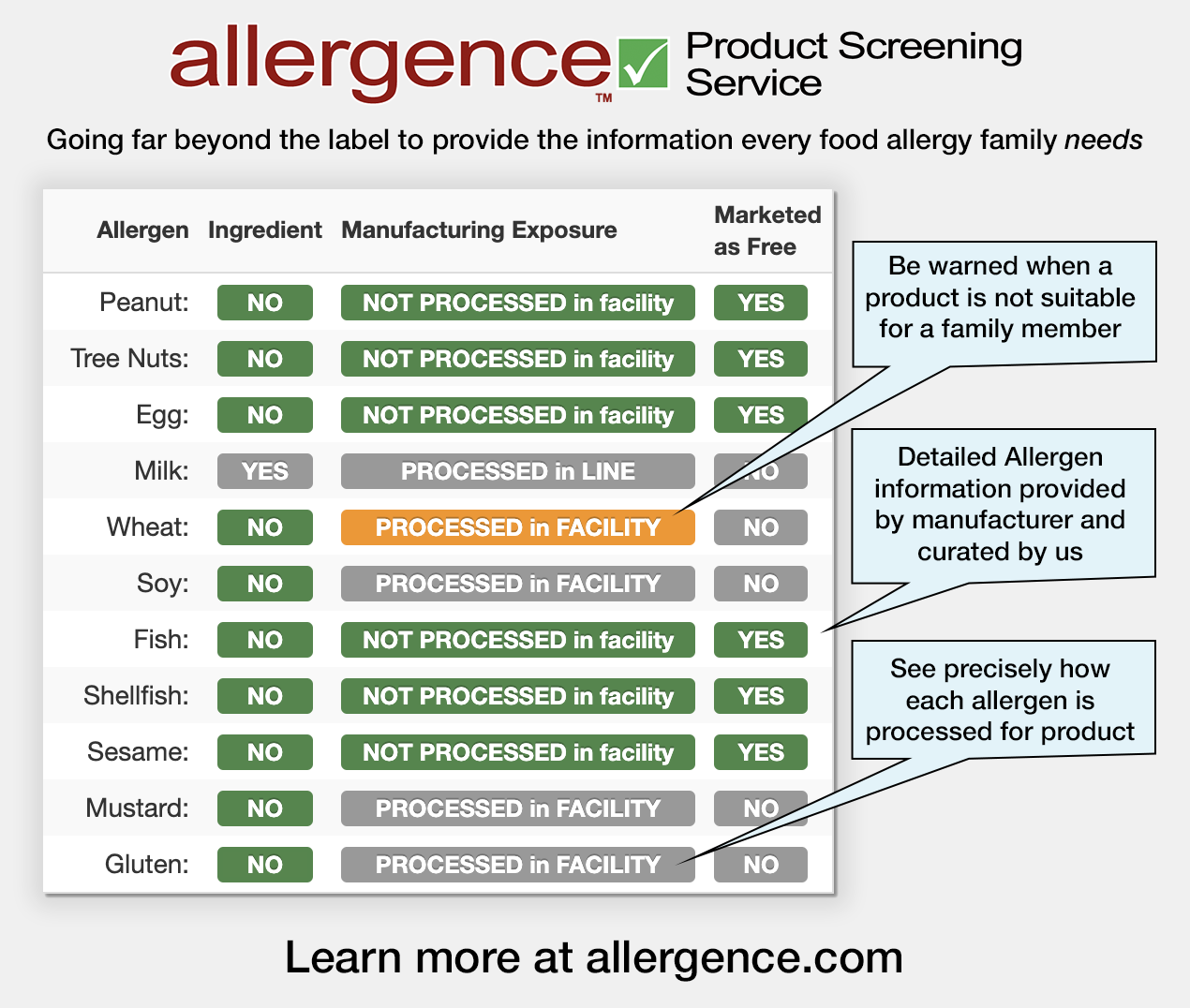Because you can’t trust the label…
Here’s the sad reality: US labeling requirements are lax — even dangerous — when it comes to food allergies.
You may know that manufacturers are required to disclose when any of the top eight allergens are ingredients of a product. But did you know that there is no requirement for them to warn you when there is a danger of cross-contact with these allergens, such as when a product is made on equipment where an allergen is also processed?
Warnings such as “May contain…” and “Manufactured in a facility that also processes…” are not required under FDA regulations, and there are no standards for when they should be used, how they should be worded, and where they should appear.
You might think the absence of an allergen warning — especially when there are warnings for other allergens on the label — means the product is safe. You might also think the major manufacturers can be trusted to disclose the possibility of cross-contamination in the interest of public safety. You would be wrong on both counts.
The fact is, you can’t trust the label to determine whether a product you hold in your hand is safe from traces of an allergen, and a mere trace may be enough to trigger a reaction or worse… anaphylaxis.
…we created Allergence
We’ve solved this problem by partnering directly with responsible manufacturers to provide you the inside information on how each product is manufactured, and we convey that information to you in a clear and unambiguous way.
Manufacturers use our proprietary platform to disclose detailed information regarding how 11 of the most common allergens are processed in their facilities and manufacturing lines. These include: peanuts, tree nuts, milk, eggs, wheat, soy, fish, shellfish, (the FDA’s “Top 8”) as well as gluten, sesame, and mustard. We then curate that information for accuracy.
Allergence provides this information for each product in an easy-to-understand format along with product descriptions, ingredient lists, industry recognized certifications (like kosher, organic, gluten-free, and non-GMO) and other important information.
You can favorite products, follow manufacturers, and even enter profiles for each family member with dietary restrictions to have Allergence advise you when a product may not be suitable for your household.
Click here to sign up today. It’s free and we will never share your information!






